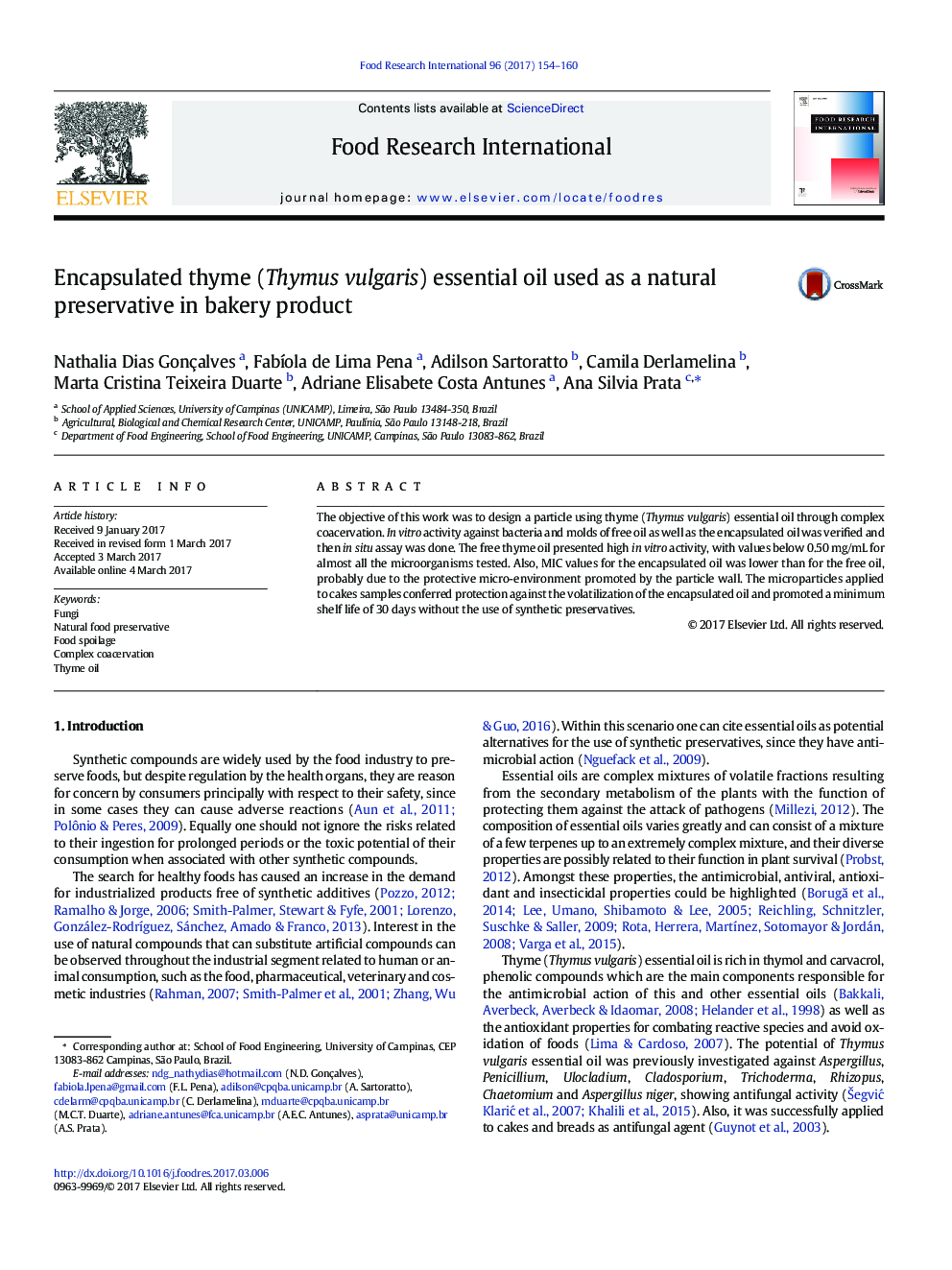| Article ID | Journal | Published Year | Pages | File Type |
|---|---|---|---|---|
| 5768263 | Food Research International | 2017 | 7 Pages |
â¢Thyme oil was efficient against bacteria and molds.â¢Microparticles were ten times more effective than the free oil in the “in vitro” test.â¢Shelf life of the cakes with added microparticles was improved (> 30 days).
The objective of this work was to design a particle using thyme (Thymus vulgaris) essential oil through complex coacervation. In vitro activity against bacteria and molds of free oil as well as the encapsulated oil was verified and then in situ assay was done. The free thyme oil presented high in vitro activity, with values below 0.50Â mg/mL for almost all the microorganisms tested. Also, MIC values for the encapsulated oil was lower than for the free oil, probably due to the protective micro-environment promoted by the particle wall. The microparticles applied to cakes samples conferred protection against the volatilization of the encapsulated oil and promoted a minimum shelf life of 30Â days without the use of synthetic preservatives.
Graphical abstractDownload high-res image (116KB)Download full-size image
